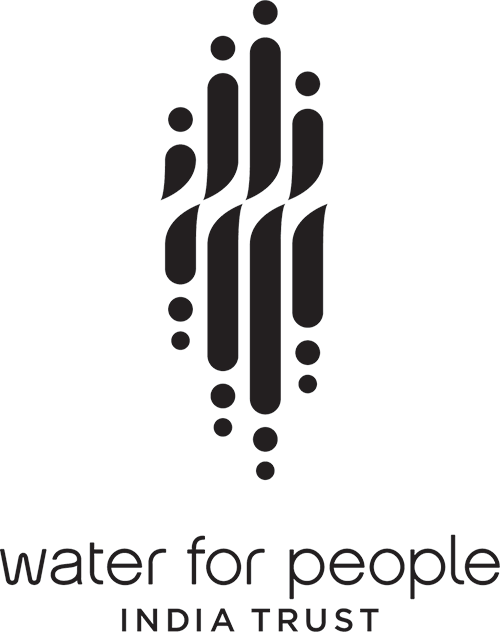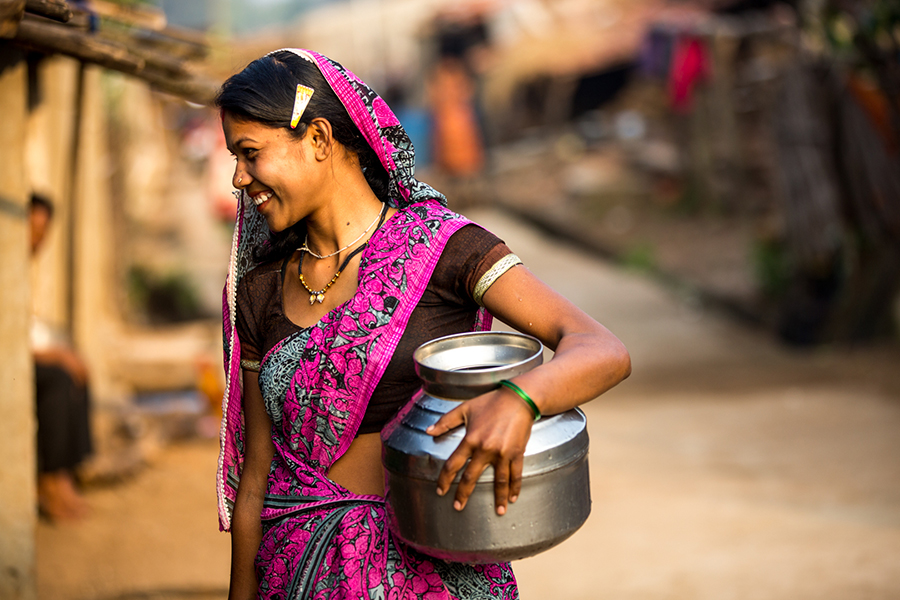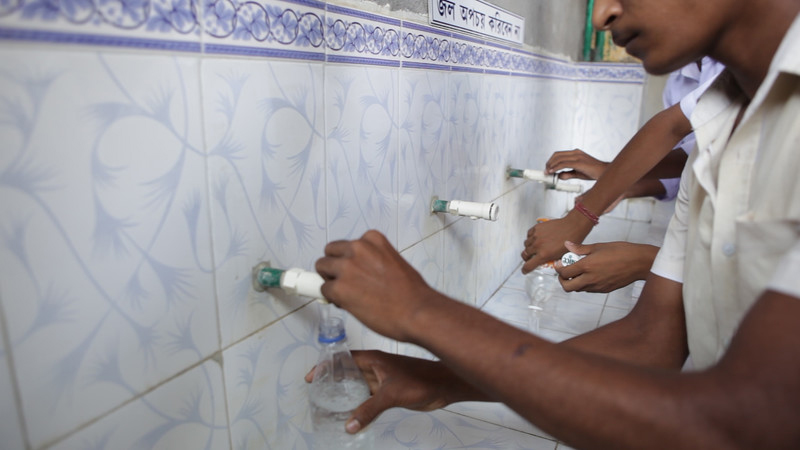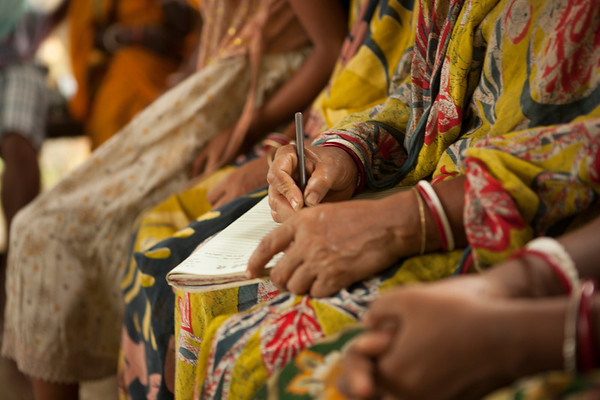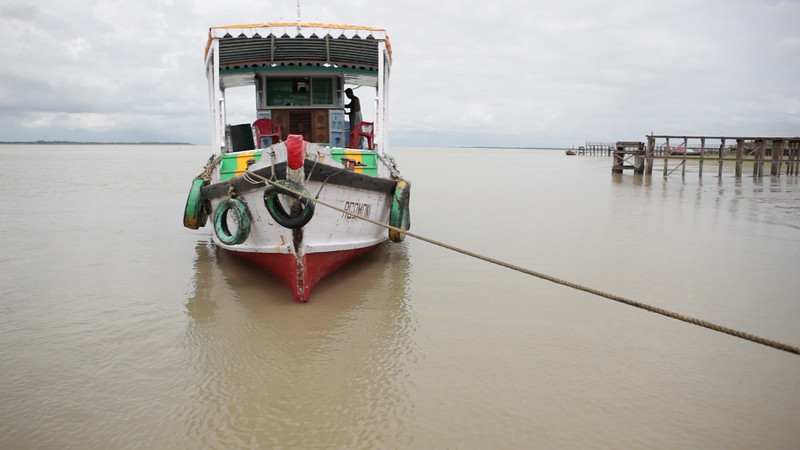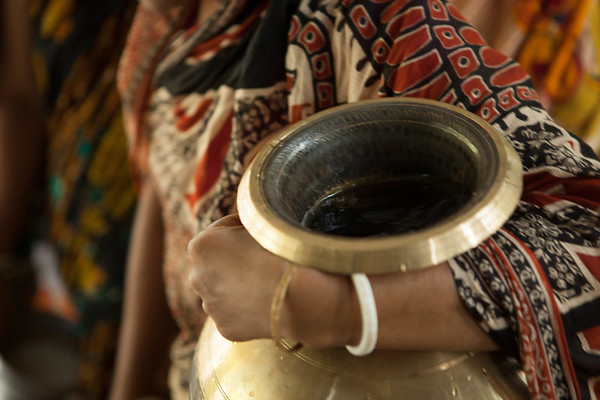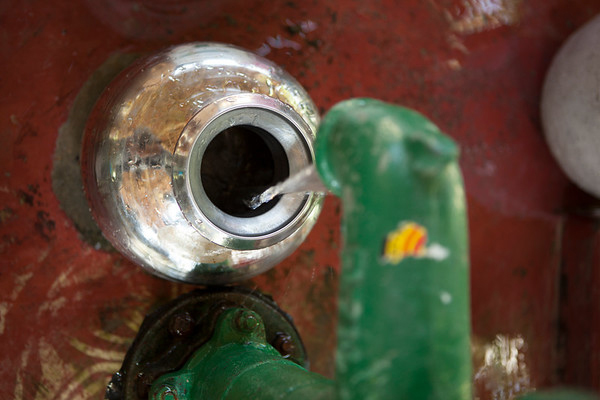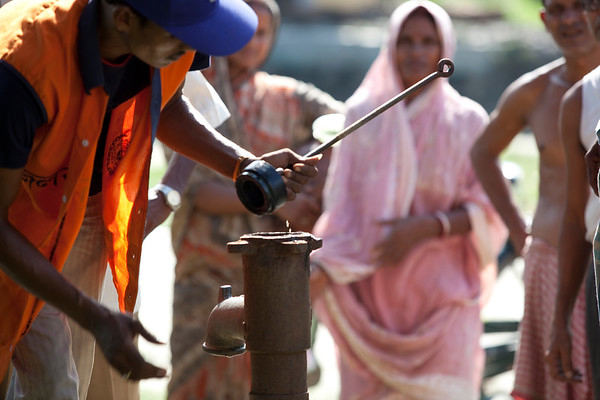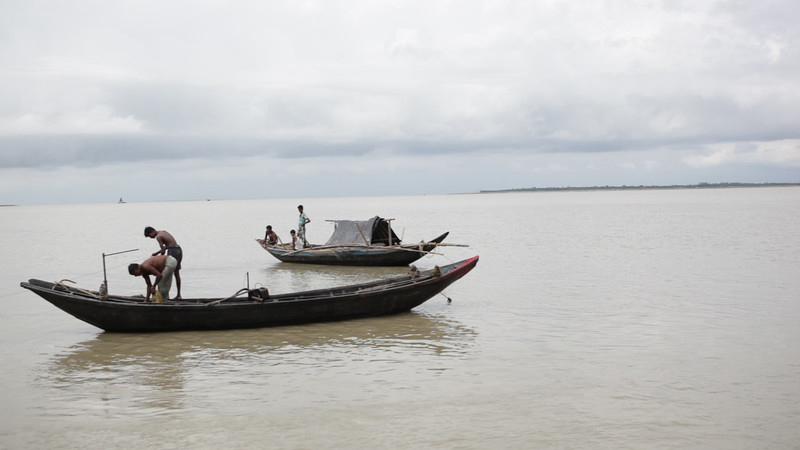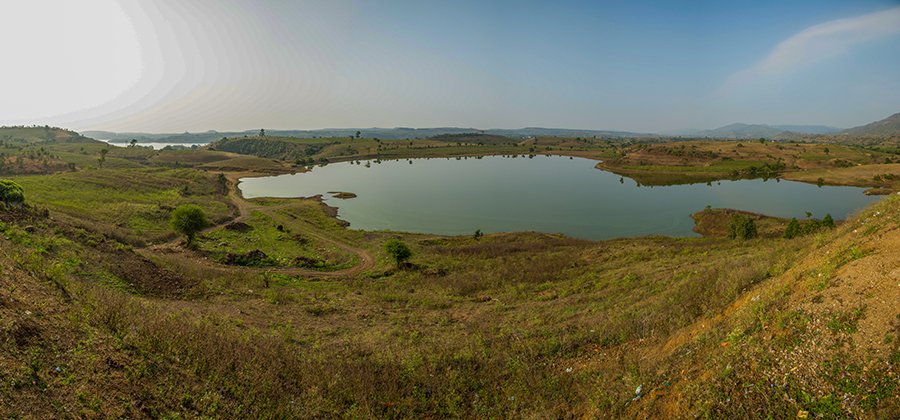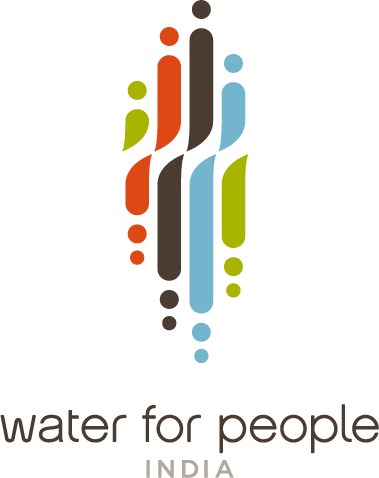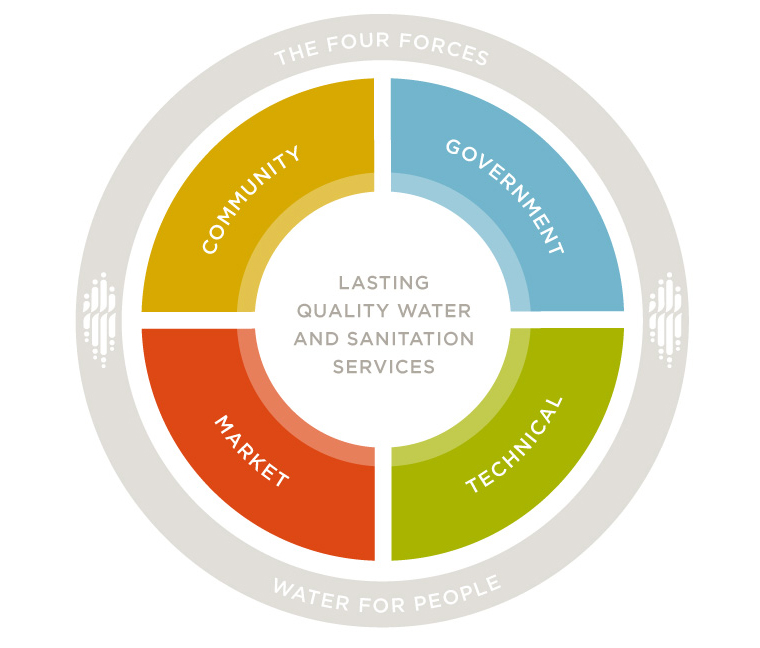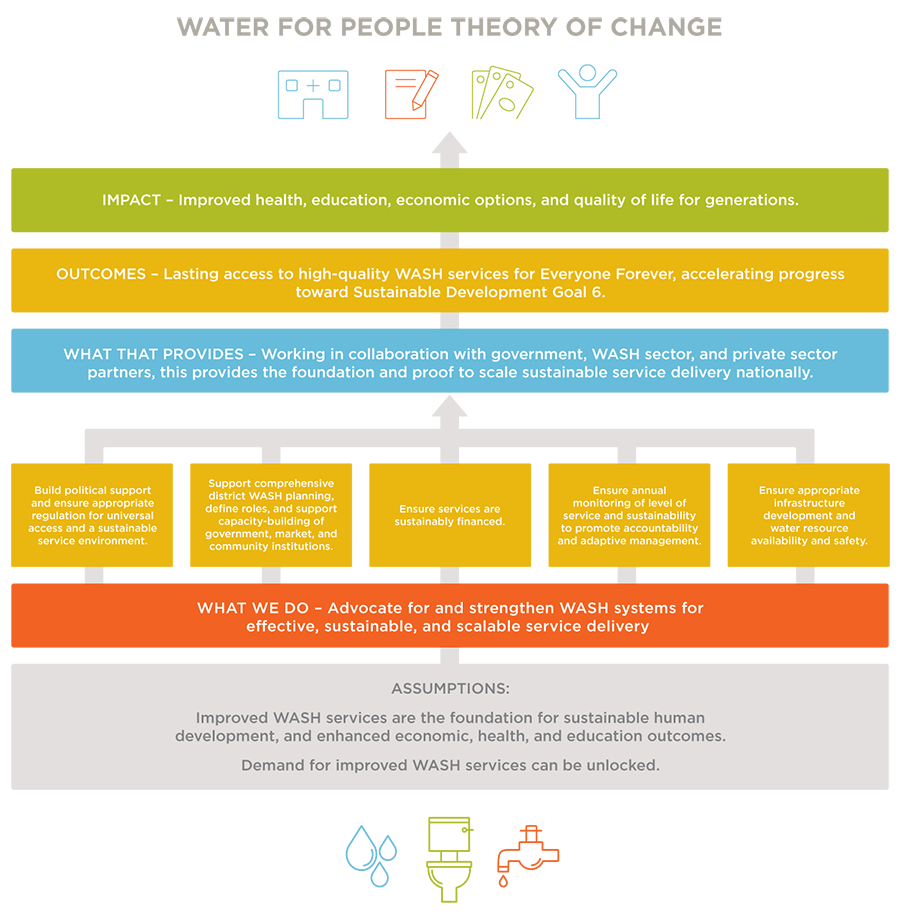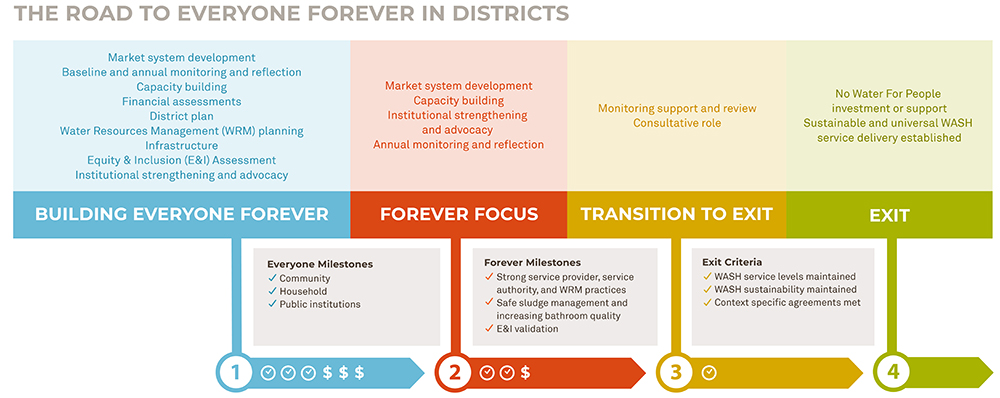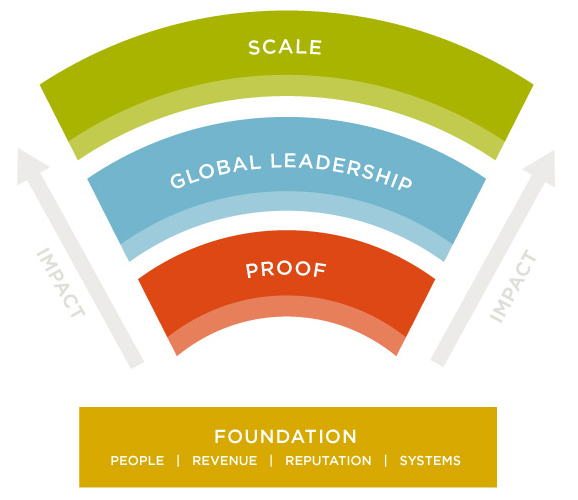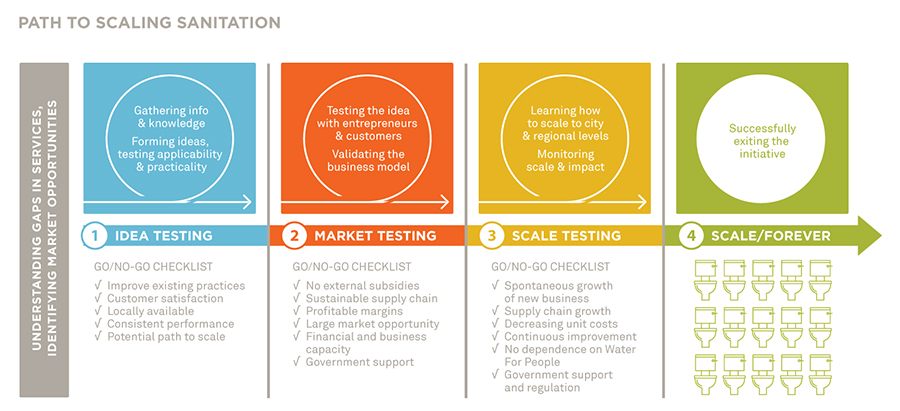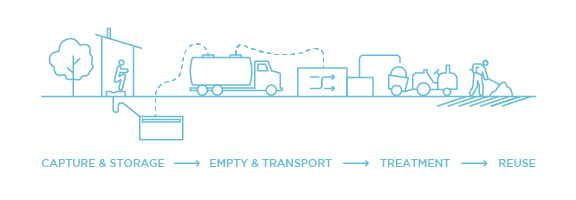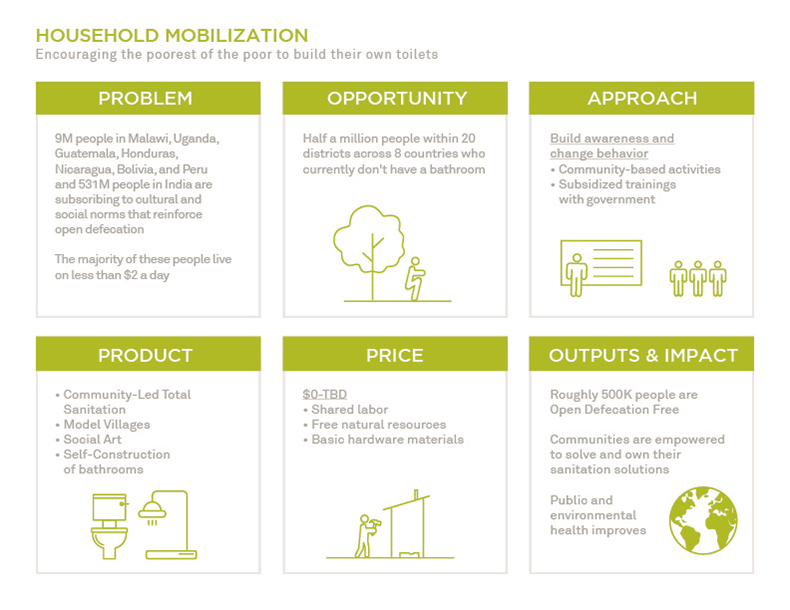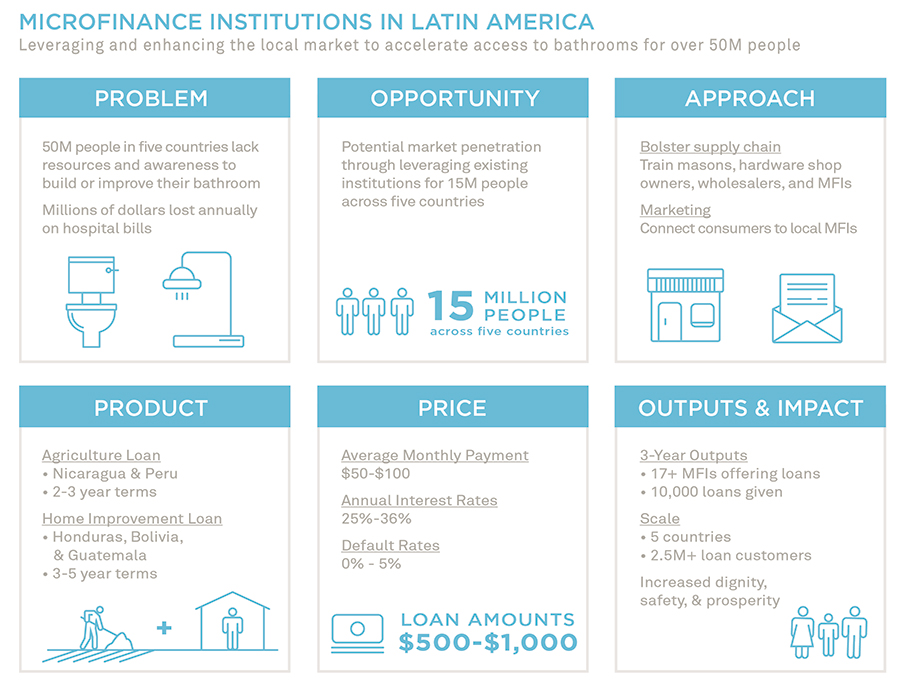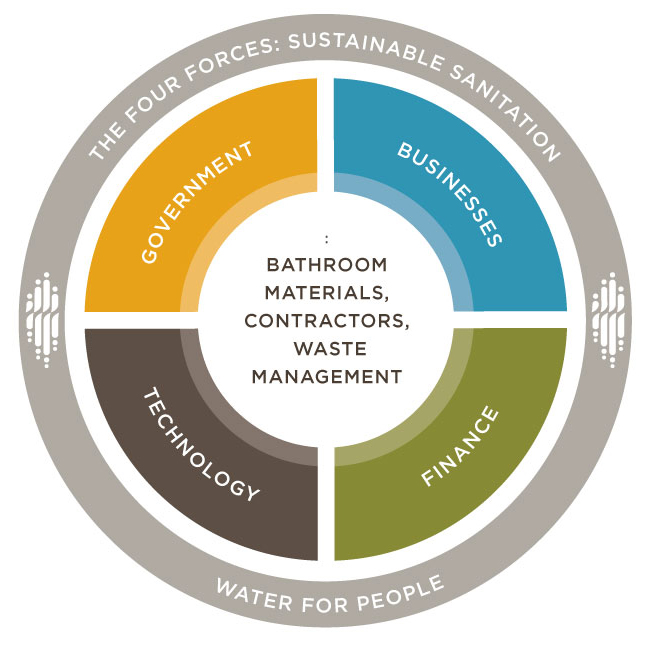The one who takes the first step may not reach the goal; this deters millions, but motivatesthousands to walk. This story reflects government departments, teachers, parents, students, and project staff coming together to help schools to improve operation and maintenance (O&M) of School Water, Sanitation, and Hygiene (SWASH) facilities.
“Our students now have enough soap,” beams headmaster Mr. Upadhyay. “Once we received 505 soaps in a single soap drive! Earlier, students would be using a single soap for a month.”Parents have been donating soaps and cleaning materials in soap drives regularly organized by teachers of Sangha Mitra Higher Secondary Vidyalaya, a school of 1,236 students renovated by Water For People India.
“Students come from poor families. We cannot even ask for school development fees of ₹240/-(US$3.28)1,” shared the headmaster. “We paid the school contribution for renovating the facilities from our salaries.”
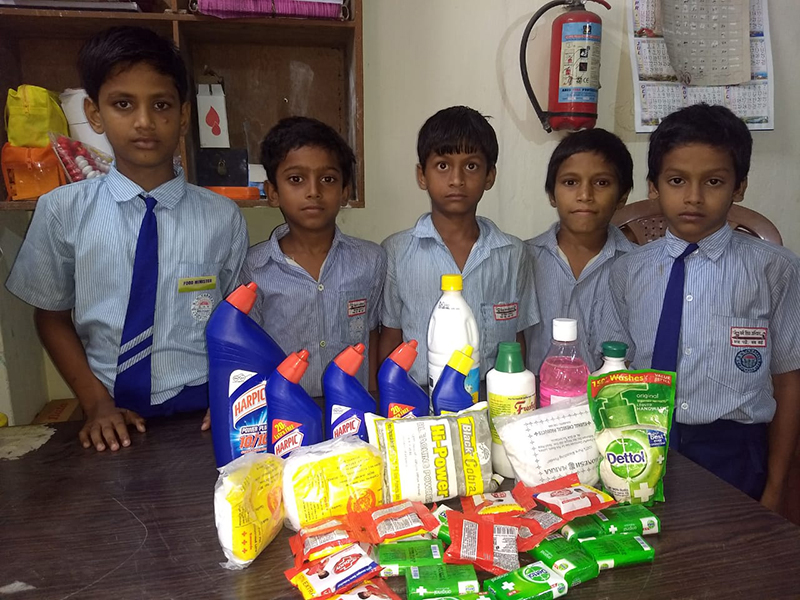
Under the SWASH program, Water For People provides separate colorful toilets for boys and girlswith running water, along with dedicated handwashing and drinking water stations. Water For People facilitates school authorities, local governments, and communities to make an informed choice about investing in renovation and O&M costs (such as cleaning materials and cleaner salaries) to improve their WASH facilities.
“We were to decide if we should opt for improved toilets, as we don’t have funds to meet maintenance costs. We receive only ₹12,344/- (US$170) 2 for maintaining the school,” shared Mr. Gour Gopal Sinha, Headmaster of Jogarampur Bansberia Primary School. “And we can’t ask for school fees.” With free education up to class VIII (children up to 14 years of age), paying school fees is a choice most parents refrain from making – some out of poverty, some out of ignorance.
Under the Right to Education Act3, schools depend entirely on government funds, which do not adequately cover O&M of WASH facilities. With few funds, WASH facilities are overlooked andbecome dysfunctional. In both urban and rural areas, most school toilets are unclean with broken doors. Most rural schools do not have running water in the toilets. Students avoid using toiletsexcept in emergencies. School toilets are stigmatized as filthy, dirty, stinky, and broken down.“We go to the toilet for cheating during exams, smoking, or in emergencies,” shared a student ofa rural school in Howrah District. “Nobody looks into the toilet to check what we are doing,” laughed another student. What was once a critical part of waste management turns into a waste.
The Water For People team is always exploring new strategies to support schools in meeting these costs to ensure functionality of the toilets. “I was hopeful for change through advocacy, because in 2014, Kolkata’s Sarva Shiksha Mission deallocated Mother Teacher Association (MTA) meeting expenses towards purchasing of soaps for handwashing,” shared Pritanu Mishra. Mr. Mishra has been leading school sanitation program for Water For People in West Bengal and has advocated for fund allocation for WASH expenditure in schools. “Earlier, teachers provided soaps for handwashing to students.”
Keeping in view the plight of schools countrywide, the government’s Integrated Scheme for School Education (Samagra Shikhsha) sanctioned a Composite School Grant according to the number of students enrolled in a school. ₹12,500/- (US$170.88) was sanctioned for schools with 15 or fewer students, ₹25,000/- (US$341.76) for 16-100 students, ₹50,000/- (US$683) for 100-250, ₹75,000/- (US$1025.29) for 250-1000, and ₹1,00,000/- (US$132) for student population over 1,000. The scheme also directs schools to spend at least 10% of the grant on maintenance of toilets and activities related to a Swachhata (Cleanliness) Action Plan, a milestone initiative in mainstreaming cleanliness elements across all government sectors in an elaborate, accountable, and sustained manner.
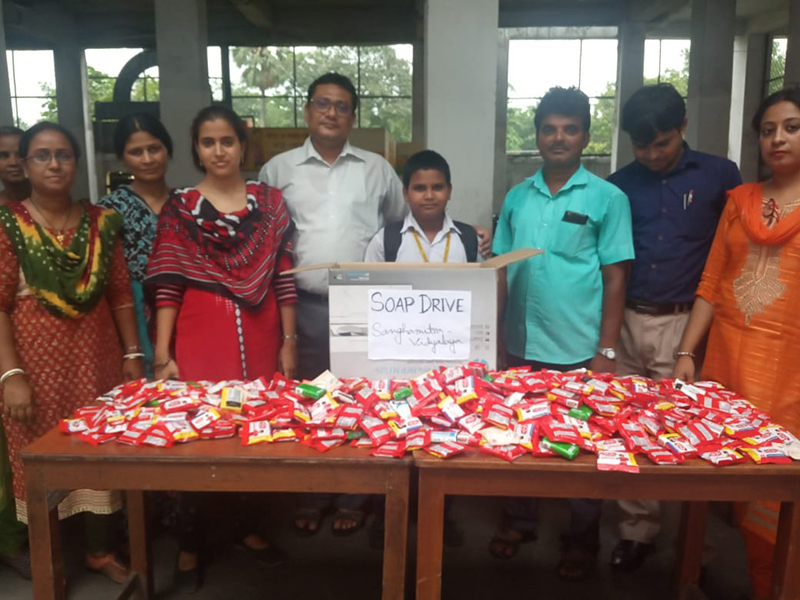
“But 10% would only meet sweeper costs of ₹250/- (US$3.41). Expenditures for cleaning materials and soap are still unmet, as fund support of ₹200/- (US$2.73) for soap was discontinued,” shared Mr. Mishra. “We thought of involving MTA, parents, teachers, and child cabinets4 to decide how to source funds to meet expenditures.”
Earlier attempts to prepare a maintenance budget of WASH facilities with teachers and parentswas futile as there were no sources of funds. “In the beginning, the annual maintenance budget was always incomplete, as we could only do half [of the exercise]. The teachers and the guardians always said that the source of funds is local government (Gram Panchayat)5, and the solution was never found,” continued Mr. Mishra.
“So, when the child cabinet shared that they would request other students to bring one soap, or any cleaning material, that was a solution unimaginable. [It] was decided by the students, for the students, from the students!” exclaimed Mr. Mishra.
Teams organize soap drives in schools, across rural and urban areas in Howrah, Hooghly, Kolkata, and Birbhum Districts of West Bengal. Parents donated soaps, buckets, disinfectants,and brushes. These were recorded in registers, kept safely under the supervision of the headmaster.
Some local panchayats have started to include expenditures of Nirmal Bandhu6 in their Gram Panchayat Development Fund, which has shifted the burden from the schools over to the government. “The money thus saved is better utilized for SWASH activities. Now we clean our schools at least thrice a week, up from once a month,” shared a proud and happy teacher of Boner Math Sabitribala School of Hooghly District.
“Our achievement is we have bridged the gap between school, guardians, and the panchayat.Where school was [once] perceived as government property and teachers are service providers, now both are aware of challenges each faces, both working together. [Water For People staff] are mere facilitators,” smiles Pritanu.
This blog was written with direct inputs from Mr. Pritanu Mishra, a sexagenarian affectionately addressed as Pritanuda (“da” is added as a term for big brother). Pritanuda has spent his career working for the distraught and the needy, mobilizing government, media, and political leaders. At his leisure, he worked for the Church reaching out to the community. His deep understanding of school sanitation and the education department has helped in reaching out to students, teachers,and guardians. During the Covid-19 pandemic, Pritanuda worked extensively to advance work in the schools and community of Kolkata.
Mr. Mishra was diagnosed with Covid-19 and breathed his last on 28th April 2021.







